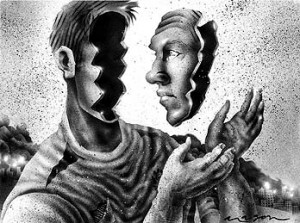Juan Gomez writes…
As we have constantly argued for in this blog, experimental philosophy went beyond the boundaries of natural philosophy and was adopted in a number of other areas (ethics, aesthetics, theology, etc.) We have seen that this is particularly true in the case of Scotland (Turnbull, Hume, Fordyce, Reid, Hutcheson, Smith etc.), but we are yet to discuss the suitability of the experimental method of natural philosophy for enquiries into moral philosophy. In particular, we have not examined in any detail what those thinkers we have discussed would count as ‘experiments’ in formulating their moral theories. This is the topic of today’s post.

In a previous post I commented on Turnbull’s description of paintings as suitable samples or experiments for moral philosophy. But that discussion considered Turnbull’s Treatise on Ancient Painting instead of his main moral text, The Principles of Moral Philosophy. In the latter there is no explicit statement of what experiments for moral philosophy would look like, but we can get a picture of what they would amount to. Turnbull constantly writes statements where he tells us that the only method we should apply in all inquiries is one founded on experiment and observation:
- …we set about such an inquiry [moral] in the fair impartial way of experiment, and of reasoning from experiment alone…
…the whole of true natural philosophy is not, for that reason, no more than a system of facts discovered by experiment and observation; but it is a mixture of experiments, with reasonings from experiments: so in the same manner, in moral philosophy…
In fine, the only thing in enquiries into any part of nature, moral or corporeal, is not to admit any hypothesis as the real solution of appearances, till it is found really to take place in nature, either by immediate experiment, or by necessary reasonings from effects, that unavoidably lead to it as their sole cause, law, or principle.
It is only in the way of experiment, that either the science of the human mind, or of any material system can be acquired.
From these statements and the argument Turnbull develops in his book, it seems that he is using ‘experiment’ in a sense that is closer to the meaning of ‘experience’. This usage of the term is not surprising, since the French word ‘experience’ can mean both ‘experiment’ and ‘experience,’ and even in English and in Spanish the word can be used with both senses (the verb ‘experimentar’ in Spanish is used both to refer to ‘experience’ and to ‘experiment’). So it seems that ‘experiments’ in moral philosophy lose one of the connotations the term has in natural philosophy, namely the active, manipulation of nature. When Turnbull insists that in moral philosophy we can only reason by way of experiments, he is talking about observing and experiencing the way human beings behave, and founding our conclusions on such observations. So far we would have to say that there are no experiments per se in moral philosophy, but rather just experience and observation.
However, there is an aspect that does have some sort of parallel with experiments in natural philosophy. As I commented in a previous post, introspection is one of the aspects that the Scottish experimental moral philosophers used in their investigations, and this is the experimenting factor in their method. If we are to follow the methodology of experimental philosophy, then we must found all our theories on experience and observation, and completely disregard any sort of hypotheses and speculation. But when the subject of our inquiries is the human mind, our observations are limited. Yes, we can observe how other human beings behave, and that can give us some knowledge, but we cannot observe their minds. The only way anyone can observe the human mind and its operations is by looking into and experiencing their own mind, by introspection. By looking into our own minds we can construct an explanation of our constitution and behaviour based on such observations, and then we can observe others and compare experiences in order to enrich our moral theories. This is why Turnbull is constantly asking the reader not to take his word for the claims he makes, but rather experiment and look into their own minds to confirm such claims. He wasn’t the only one taking this stand: Thomas Reid also appeals to introspection and even Locke as early as Draft B of the Essay (1671) takes introspection to be a form of experiment.
So it seems that the term ‘experiment’ was tweaked for its application in moral philosophy. It is closer to what we mean by ‘experience,’ but it keeps an aspect of ‘experimenting’ that is limited to the each individual’s own mind. The question remains, however, as to whether we can actually count introspection as a proper experiment or not. The Scottish experimental moral philosophers certainly counted it just as they would count any experiment in natural philosophy.

